
In common with many other people, I have spent the last year missing the experience of life drawing. For the past 20 years or so my weekly routine has involved going to life classes. It is a practice that generates its own momentum – the more deeply I go into it, the more it seems to offer, and the more possibilities and challenges come to the fore.
After a year of not working directly from life and with a view to returning to life classes as we (potentially) emerge from lockdown restrictions, for the first time in as long as I can remember I am approaching life drawing as though from the outside. If not as a beginner then certainly as someone who is out of practice.
Of course, there were photographs and Zoom sessions to sustain us, but it is not the same. A photo or computer screen is already an image, shaped by the camera’s monocular eye. In fact, experiencing much of life virtually for a year underlines what makes the life room special. The more closely technology simulates the real, the more we must take care to be aware of what real life actually offers us. It might be a good time to reflect on what actually occurs in life drawing, what it is about, and what we might want it to be about.
HOW WILL IT FEEL?
The first thing that always strikes me about a life pose is that it is, in a sense, too much. There are so many aspects to contend with – from colour and composition, to pose and materials – and each has its own potential, limitations and challenges. No matter how long or short the pose, there is also the sense of time running away. It is a lot to take in. Strategies for coping might include doing the most important things first or working from the biggest shapes to the smallest, for instance.
Esta historia es de la edición July 2021 de Artists & Illustrators.
Comience su prueba gratuita de Magzter GOLD de 7 días para acceder a miles de historias premium seleccionadas y a más de 9,000 revistas y periódicos.
Ya eres suscriptor ? Conectar
Esta historia es de la edición July 2021 de Artists & Illustrators.
Comience su prueba gratuita de Magzter GOLD de 7 días para acceder a miles de historias premium seleccionadas y a más de 9,000 revistas y periódicos.
Ya eres suscriptor? Conectar

Still life IN 3 HOURS
Former BP Portrait Award runner-up FELICIA FORTE guides you through a simple, structured approach to painting alla prima that tackles dark, average and light colours in turn
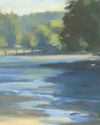
Movement in composition
Through an analysis of three masterworks, landscape painter and noted author MITCHELL ALBALA shows how you can animate landscape composition with movement
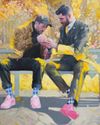
Shane Berkery
The Irish-Japanese artist talks to REBECCA BRADBURY about the innovative concepts and original colour combinations he brings to his figurative oil paintings from his Dublin garden studio

The Working Artist
Something old, something new... Our columnist LAURA BOSWELL has expert advice for balancing fresh ideas with completing half-finished work
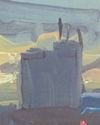
Washes AND GLAZES
Art Academy’s ROB PEPPER introduces an in-depth guide to incorporating various techniques into your next masterpiece. Artwork by STAN MILLER, CHRIS ROBINSON and MICHELE ILLING

Hands
LAURA SMITH continues her new four-part series, which encourages you to draw elements of old master paintings, and this month’s focus is on capturing hands

Vincent van Gogh
To celebrate The Courtauld’s forthcoming landmark display of the troubled Dutch master’s self-portraits, STEVE PILL looks at the stories behind 10 of the most dramatic works on display
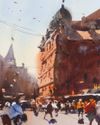
BRING THE drama
Join international watercolour maestro ALVARO CASTAGNET in London’s West End to paint a dramatic street scene
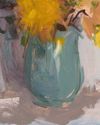
Serena Rowe
The Scottish painter tells STEVE PILL why time is precious, why emotional responses to colour are useful, and how she finds focus every day with the help of her studio wall

Bill Jacklin
Chatting over Zoom as he recovers from appendicitis, the Royal Academician tells STEVE PILL about classic scrapes in New York and his recent experiments with illustration